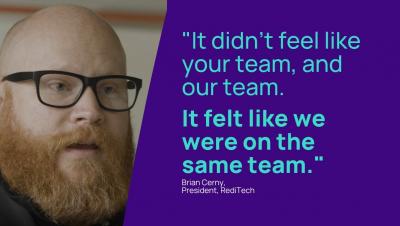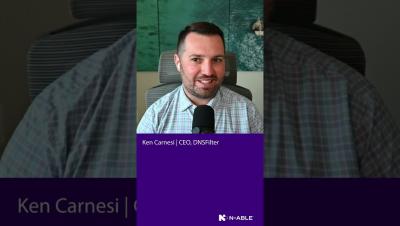Operations | Monitoring | ITSM | DevOps | Cloud
October 2022
A more greenfield opportunity for threat actors
Four ways to plan for MSP growth in challenging times
At our N-able Empower event held in Las Vegas last month, our CEO John Pagliuca spoke to more than 400 of our MSP partners about the fact that he while doesn’t believe anything is recession proof, he does believe that the MSP industry is recession resilient.
10 MSP workflows to improve managed service efficiency
With customers’ Microsoft environments becoming more sophisticated, the days of MSPs being hired to ‘just’ service an organization’s Microsoft 365 needs are long gone. Pre-pandemic, tasks typically revolved around new client setups, migrations, and updating existing Microsoft setups. It’s a different story now. MSPs are focusing their time on digital transformation, which means that more processes are needed to manage tenants. So, how can processes be more efficient?
N-able Recognized with Three Comparably Awards as a Best Place to Work
Eight MSP growth tips
With the complex and chaotic nature of IT services, MSPs often stay ‘afloat’ by concentrating on day-to-day operations. In doing so, it’s easy to lose sight of the bigger growth opportunities. Scaling is a challenge many MSPs face. Some struggle to develop a clear strategy, while others don’t know the focus areas to help them succeed. If you’re not built to scale, you could miss out on opportunities to win market share.
How to become a successful Microsoft Cloud Service Provider
There’s more to running a cloud service provider (CSP) business than simply offering an excellent service. Chances are, in time, you will want to grow and scale. However, for many, this is intimidating. Where do you start? How can you create sustainable profit? Even the most progressive CSPs face challenges; they haven’t just built a high-quality customer base out of thin air.
Is your backup still lurking in the dark ages?
As MSPs begin to grow and mature their businesses, resource efficiency is a common area of focus. It makes sense: if you want to deliver the same high service level (or better) to more customers without making huge investments in staff and equipment, efficiency and standardization are clearly the way forward. Backup is an area that is especially ripe for improved efficiency for most MSPs.
Three ways to encourage the importance of security posture
“I’m not a big enough business… I’m too small… no one will want to hack me.” “I don’t have anything of any importance that anyone would want… I’m not terribly concerned.” “It hasn’t happened to us yet, so it isn’t something I’m worried about.” “What you’re proposing seems like overkill to me. And besides, we don’t have the extra funds in our budget anyway.
N-able Announces Award Winners During Empower Partner Conference in Las Vegas
MSP automation-getting started and overcoming challenges
Over the past few Boot Camps I’ve done since becoming a Head Nerd, automation has been a continuing topic of discussion, and one that brings up various roadblocks. Many of the MSPs that I have talked to one-to-one after the Boot Camps have said they were “embarrassed” to ask more questions about automating their service delivery as they didn’t want their peers “laughing” at them. If you fall into this category, don’t panic!
Manage Microsoft 365 licenses efficiently with Cloud User Hub
Are your technicians struggling to find efficient ways to handle manual work? Or is your business at capacity and not able to keep up with the growth of your business? You’re not alone. There are many MSPs needing easier ways to manage large workloads. In today’s busy tech space, if your businesses can’t keep up with the pace, you’ll likely face big issues. Many companies are falling short at the most basic of admin tasks, like managing large volumes of Microsoft 365 licenses.
Owning the cloud is more than just a catchy headline
Since the start of the pandemic, our MSP and IT Pro partners have been the ones responsible for enabling the infrastructure to support the new hybrid workforce and transition the businesses around them to the cloud. As these new paradigms continue to embed themselves in our business realities, you, as MSPs and IT Pros, are perfectly placed to take control of the challenges of moving to the cloud and helping your customers and your organizations take advantage of the opportunities they bring.
10 steps to securing the cloud
When it comes to cloud adoption, the analogy I always use is that our networks used to be built like castles. We put all our servers and users inside, and we had big walls to protect everything. Today, we’ve shifted large parts of our businesses outside of these walls, and moved them to various cloud and SaaS providers. As a result, we no longer always have the knowledge or expertise to secure and protect them.









